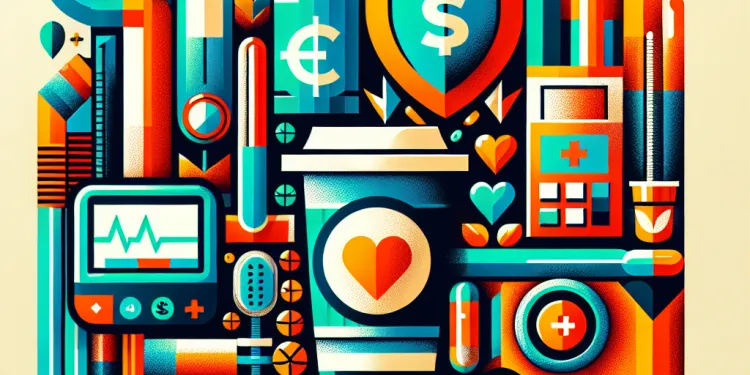
Find Help
More Items From Ergsy search
-
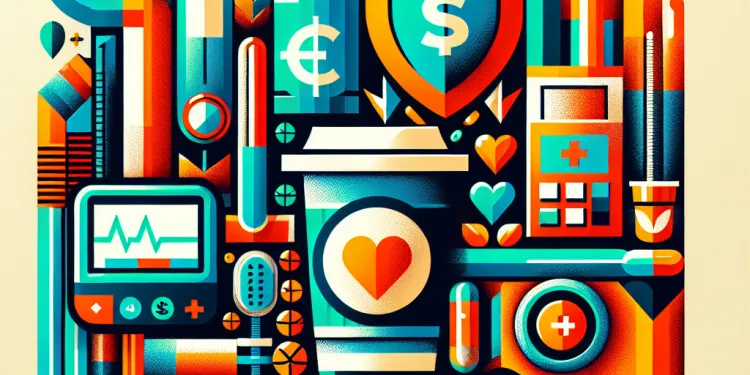
What are the symptoms of caffeine-induced high blood pressure?
Relevance: 100%
-
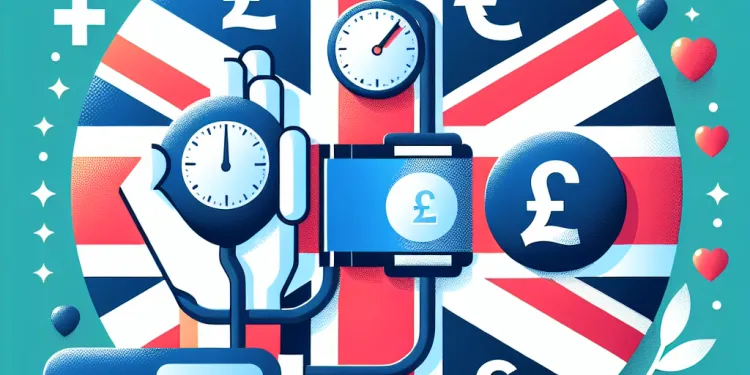
What is high blood pressure?
Relevance: 78%
-
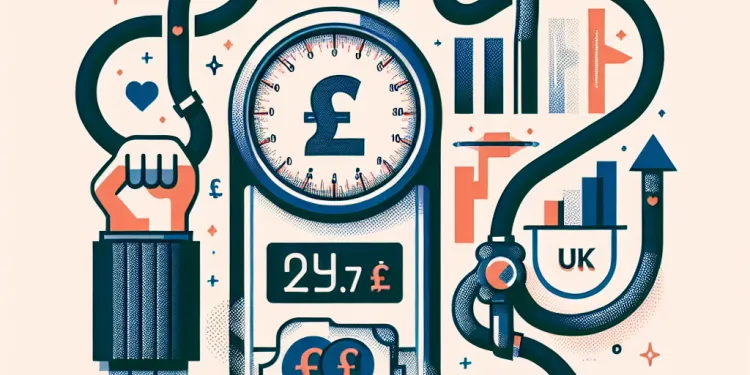
How is high blood pressure diagnosed?
Relevance: 72%
-
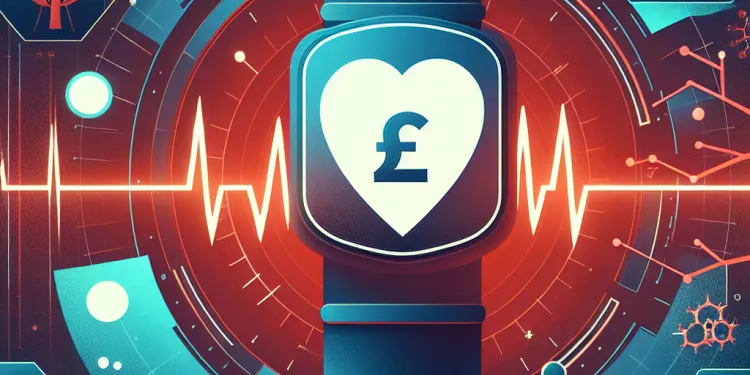
What causes high blood pressure?
Relevance: 71%
-
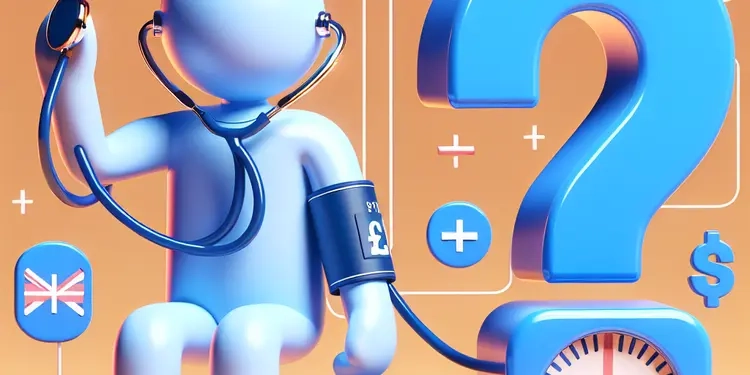
Should I test my child for high blood pressure?
Relevance: 71%
-
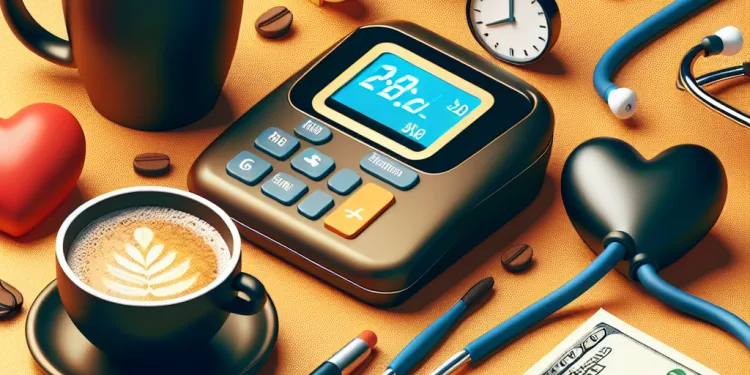
Should people with high blood pressure avoid coffee entirely?
Relevance: 70%
-
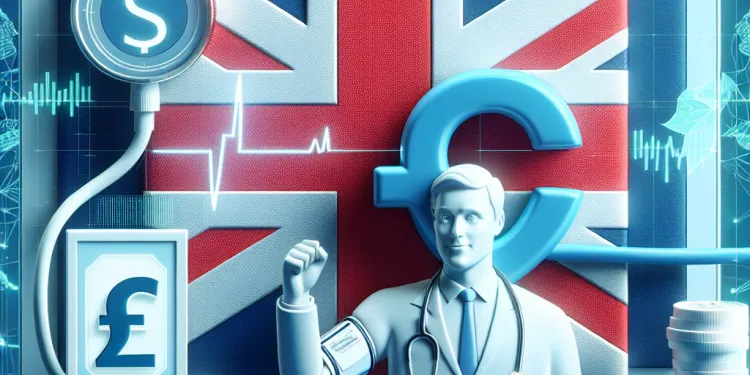
Can high blood pressure be prevented?
Relevance: 70%
-
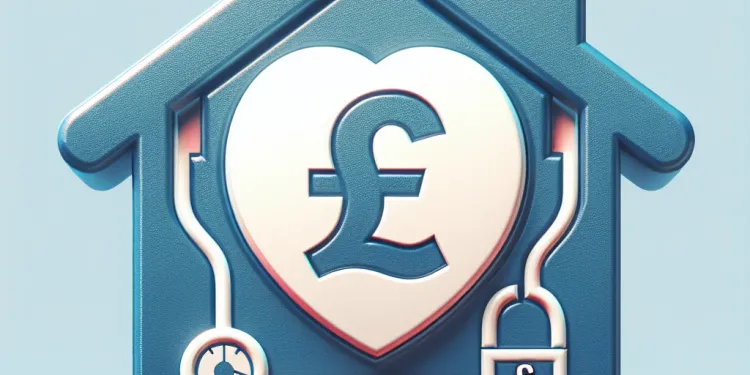
What are the risks of having high blood pressure?
Relevance: 69%
-
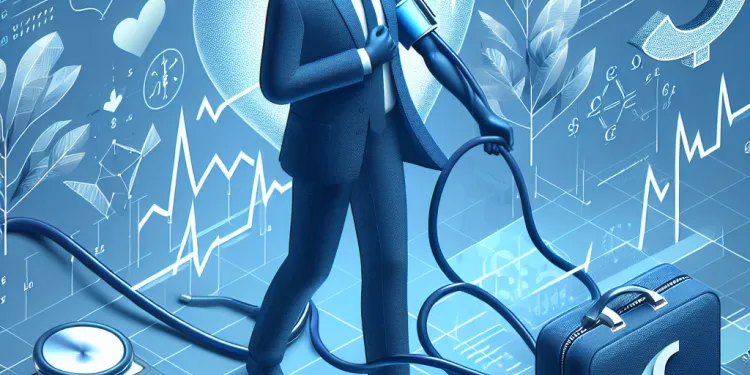
Why is high blood pressure called a 'silent killer'?
Relevance: 69%
-
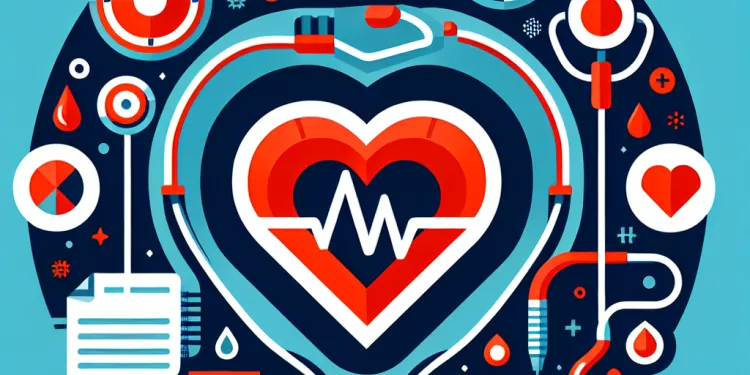
What are the symptoms of high blood pressure?
Relevance: 68%
-
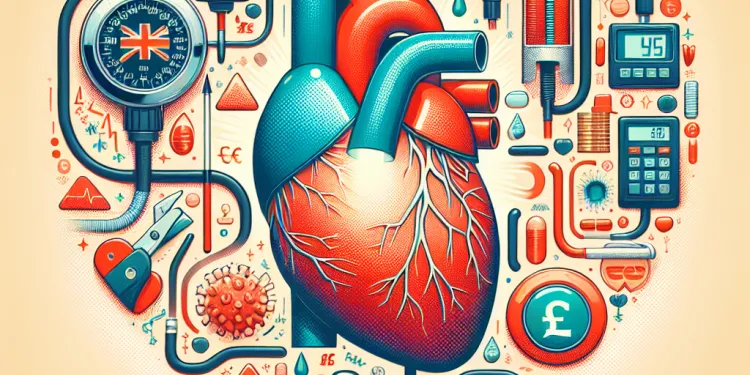
How can high blood pressure be treated?
Relevance: 68%
-
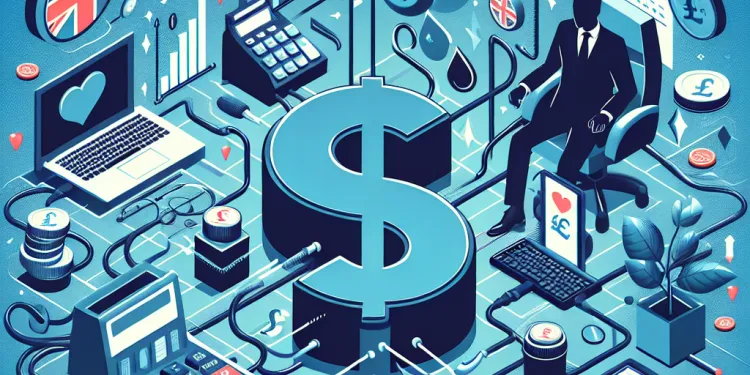
Can stress cause high blood pressure?
Relevance: 68%
-
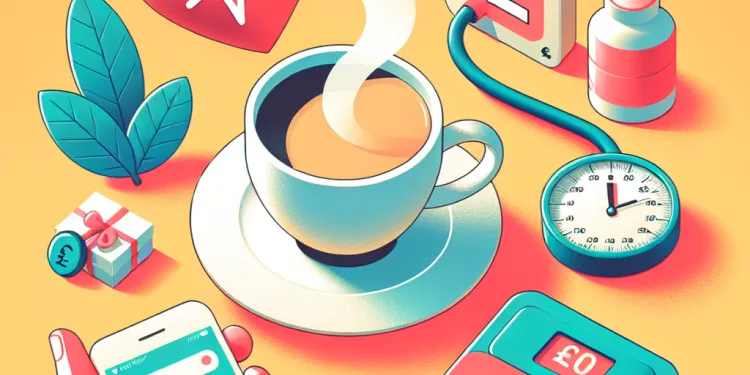
Is Your Morning Coffee a Risk Factor for High Blood Pressure?
Relevance: 65%
-
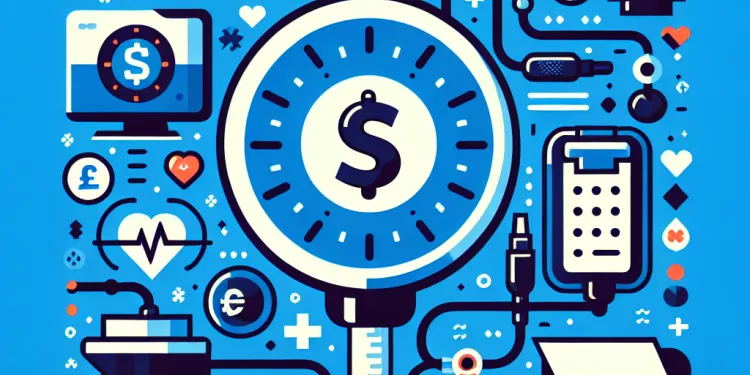
How do medications help control high blood pressure?
Relevance: 64%
-
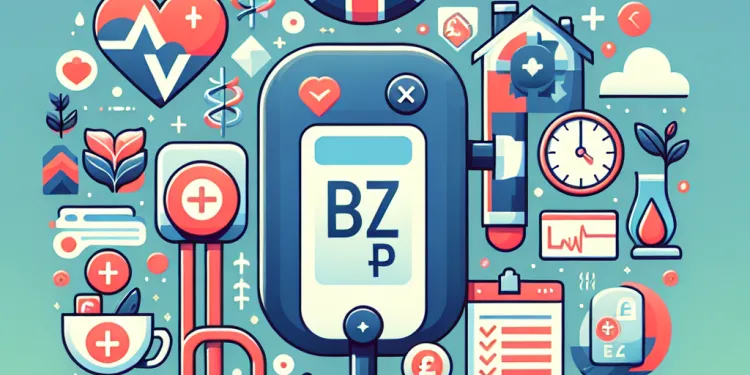
Can high blood pressure lead to other health problems?
Relevance: 63%
-
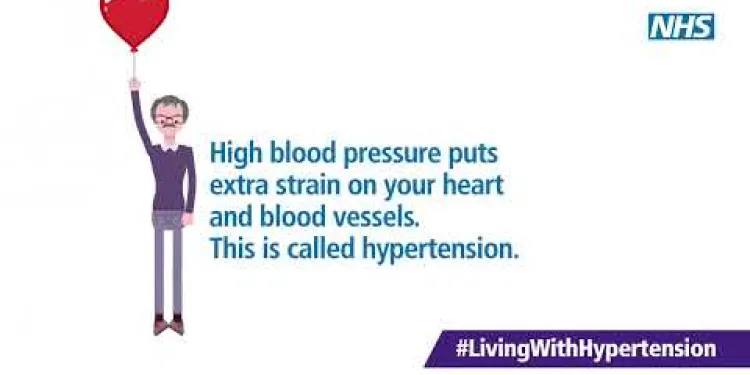
Blood pressure too high? Living with hypertension animation
Relevance: 63%
-
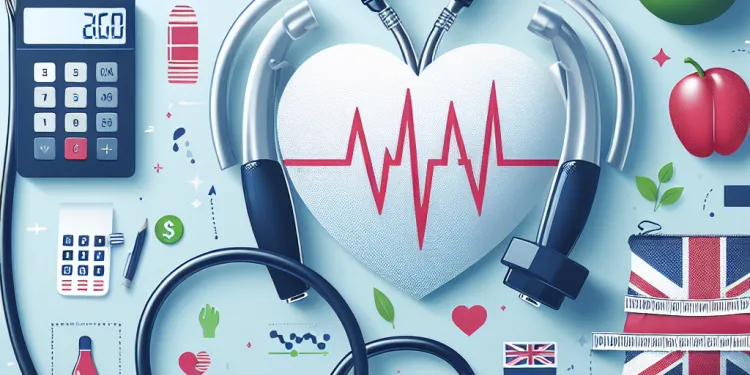
Can weight loss help reduce high blood pressure?
Relevance: 62%
-

What is the ideal salt intake for someone with high blood pressure?
Relevance: 61%
-
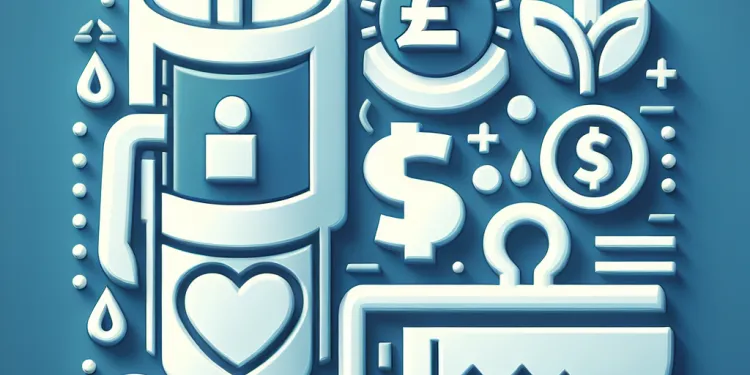
How much caffeine is generally considered safe for people with high blood pressure?
Relevance: 59%
-
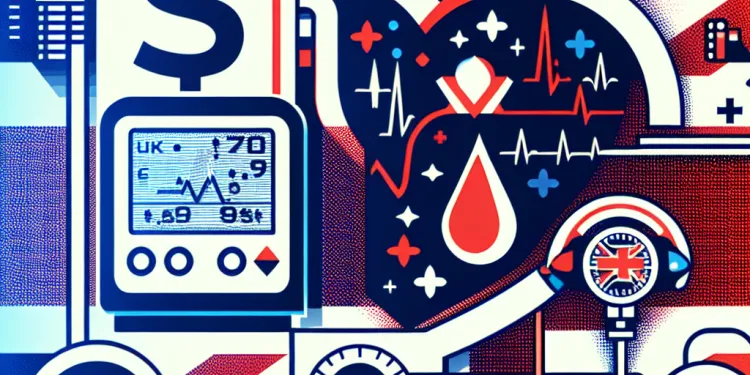
Is high blood pressure hereditary?
Relevance: 58%
-
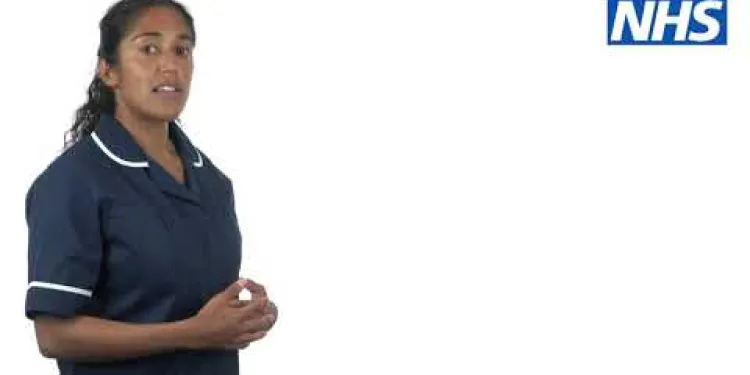
Seven Reaasons For Measuring blood pressure
Relevance: 56%
-
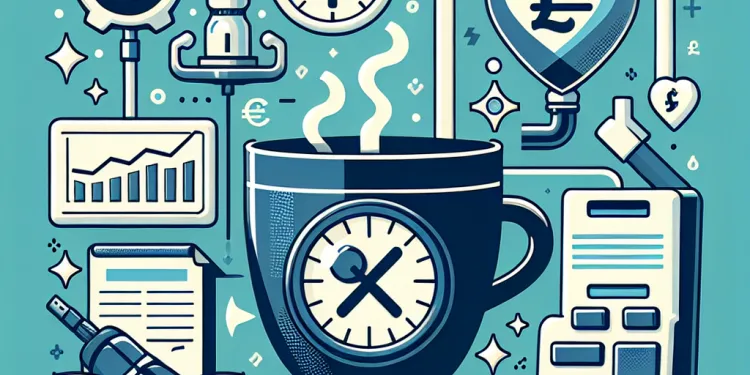
Can decaffeinated coffee affect blood pressure?
Relevance: 56%
-
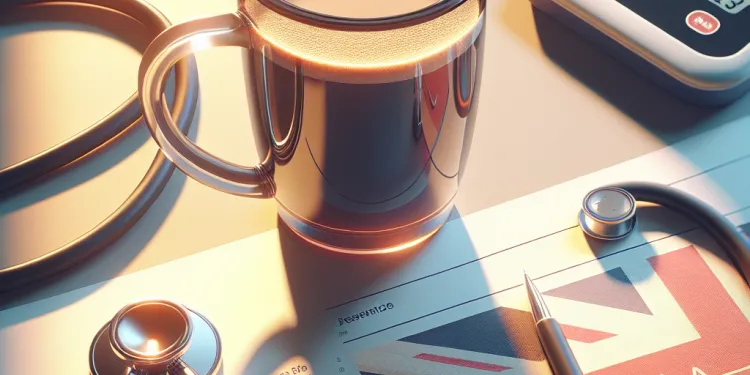
Does drinking coffee every morning increase the risk of developing high blood pressure?
Relevance: 55%
-
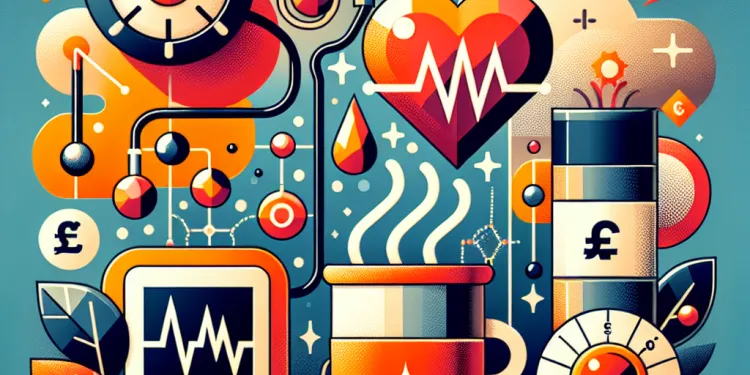
How does caffeine affect blood pressure?
Relevance: 52%
-
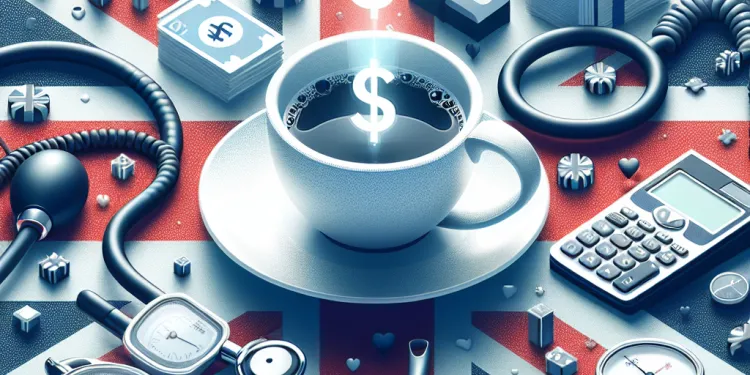
Does caffeine affect blood pressure?
Relevance: 52%
-
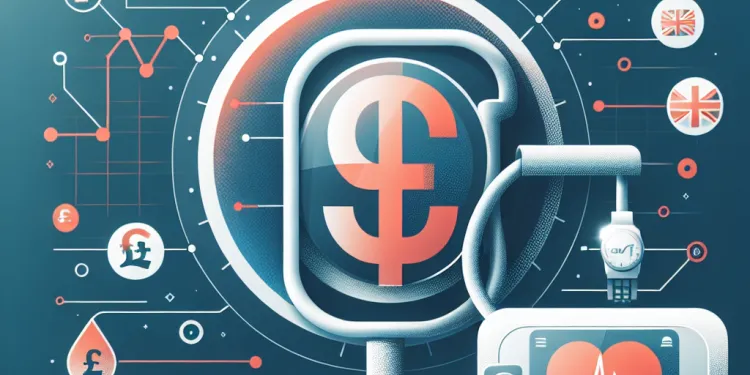
How often should I check my blood pressure?
Relevance: 51%
-
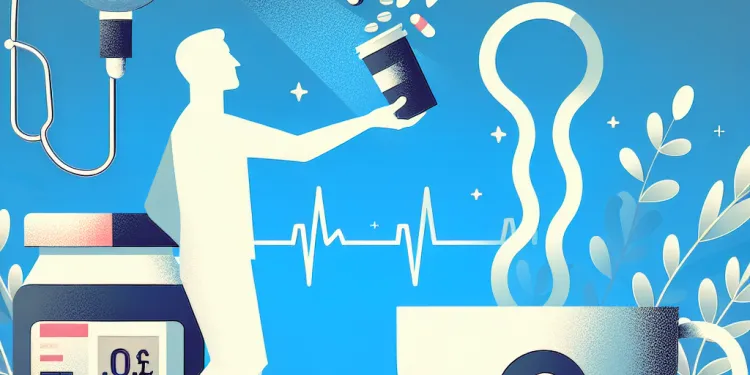
Is it safe to take blood pressure medication with coffee?
Relevance: 51%
-
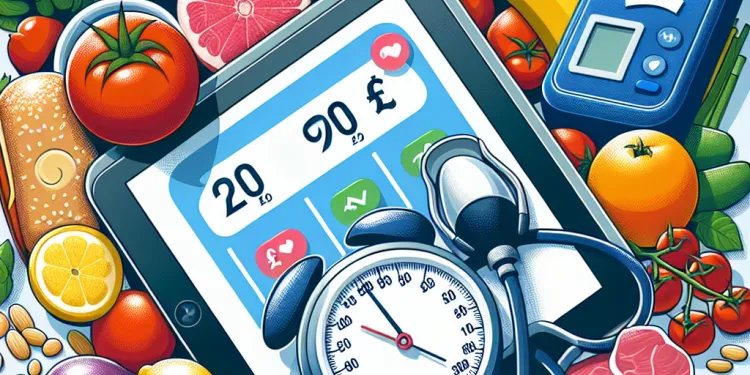
How does diet affect blood pressure?
Relevance: 51%
-
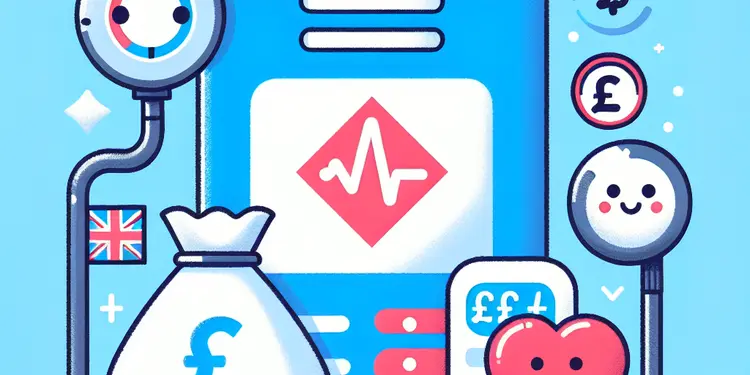
How does salt impact blood pressure?
Relevance: 50%
-
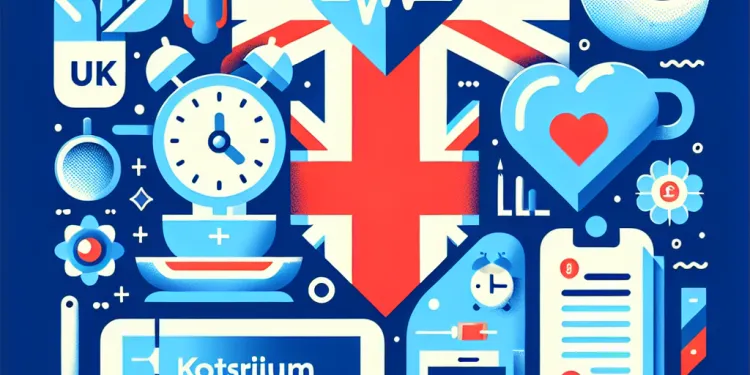
What is the role of potassium in managing blood pressure?
Relevance: 50%
-
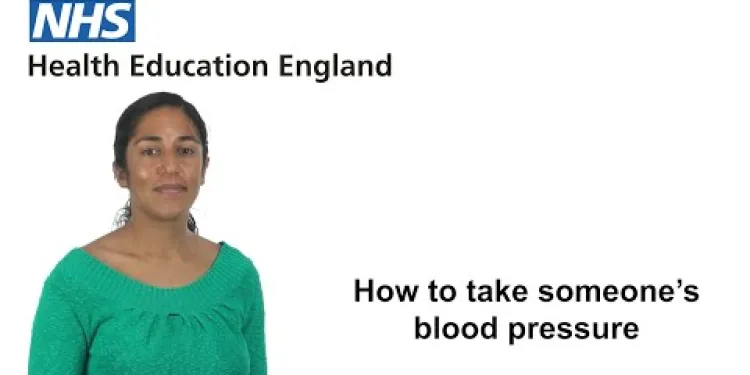
How to take someone's blood pressure
Relevance: 49%
-
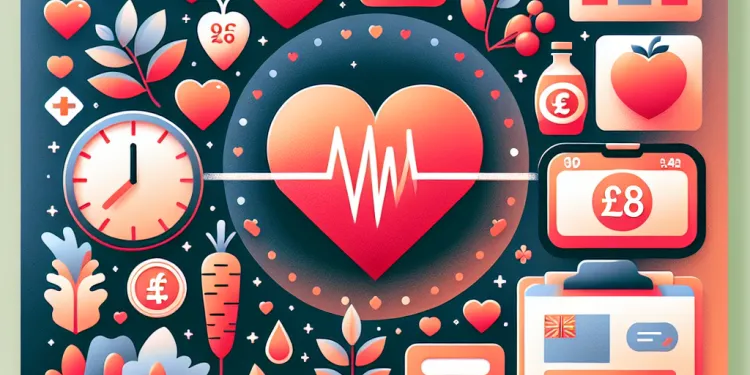
What lifestyle changes can lower blood pressure?
Relevance: 47%
-
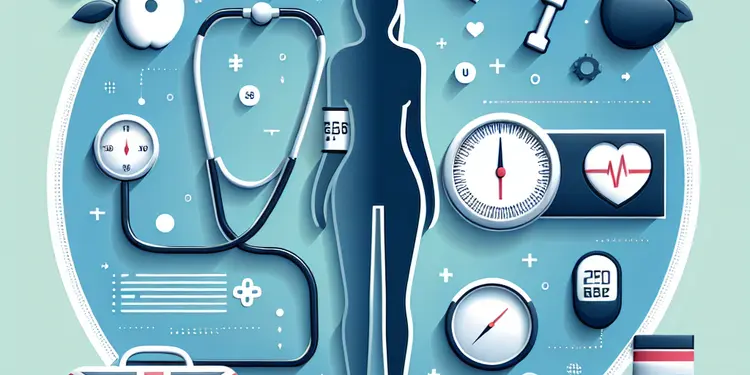
Can weight loss drugs affect blood pressure?
Relevance: 47%
-
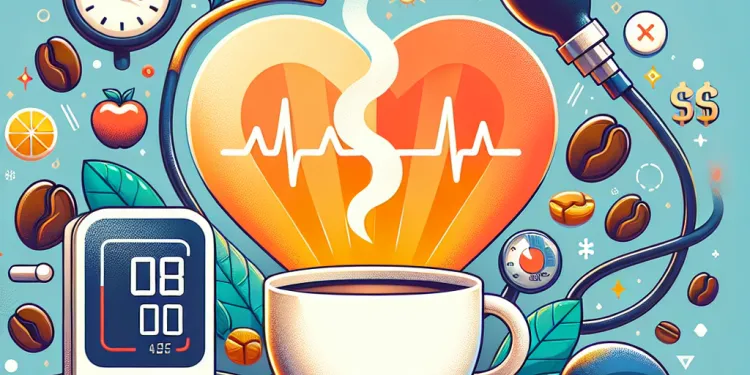
What is the link between coffee consumption and high blood pressure?
Relevance: 46%
-
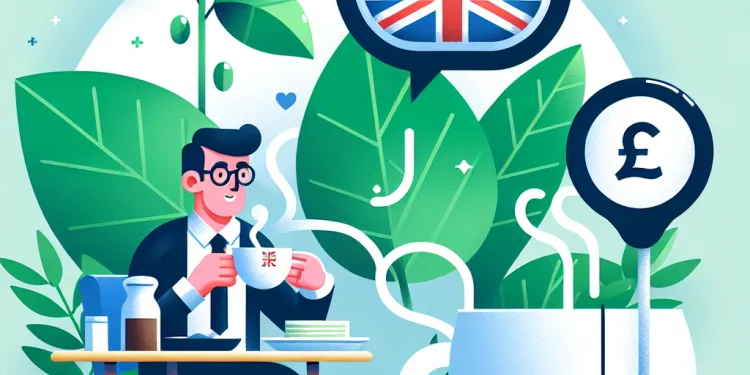
Is green tea a better alternative to coffee for blood pressure management?
Relevance: 46%
-
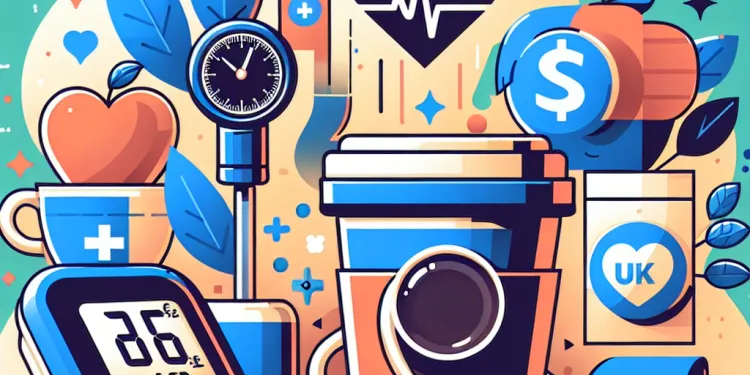
How can one minimize the impact of coffee on blood pressure?
Relevance: 45%
-
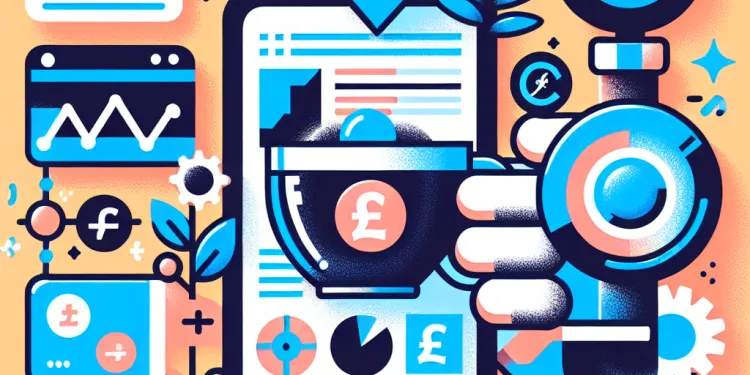
How does regular caffeine consumption impact tolerance and blood pressure?
Relevance: 44%
-
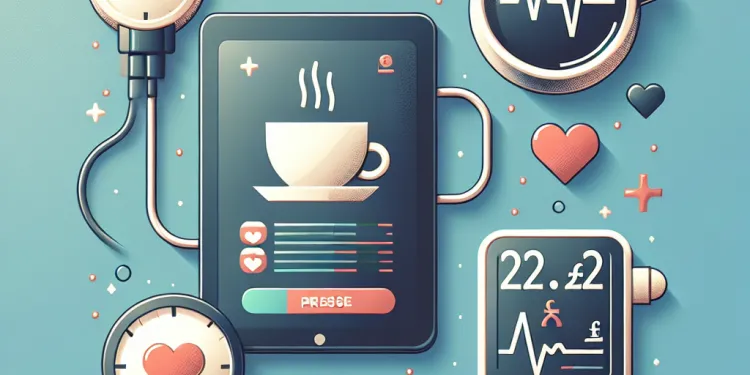
Are there any other factors in coffee that may affect blood pressure?
Relevance: 44%
-
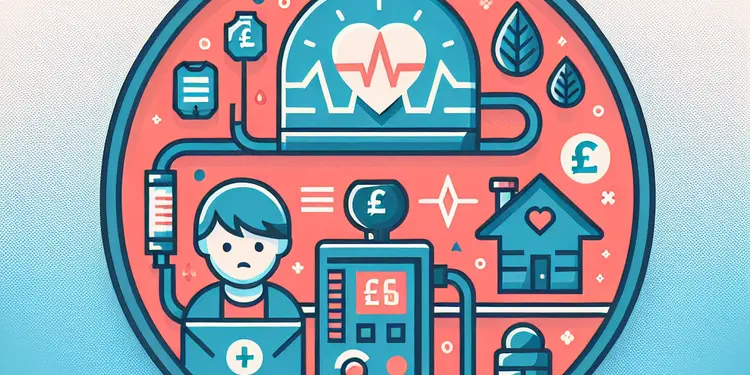
What is high blood pressure in children?
Relevance: 42%
-
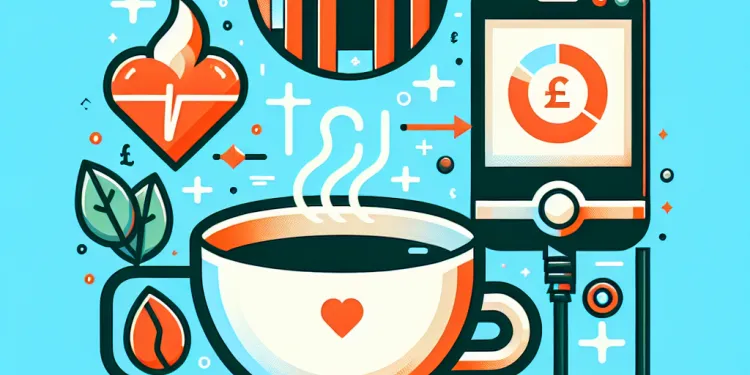
How soon after drinking coffee can blood pressure be affected?
Relevance: 42%
Caffeine and Blood Pressure
Caffeine is a widely consumed stimulant found primarily in coffee, tea, energy drinks, and some medications. While it is generally safe for most people when consumed in moderation, excessive caffeine intake can temporarily increase blood pressure levels. This effect can be particularly concerning for individuals with pre-existing hypertension or sensitivity to caffeine.
Common Symptoms of Caffeine-Induced High Blood Pressure
When caffeine leads to an increase in blood pressure, several symptoms may be experienced. It is important to recognise these symptoms, particularly if you suspect your caffeine intake is affecting your health. Common symptoms include:
- Headaches: While caffeine can sometimes relieve headaches, in excessive amounts, it can also cause them, especially if your blood pressure rises.
- Increased Heart Rate (Palpitations): An elevated heart rate is a common reaction when blood pressure spikes, leading to noticeable heart palpitations.
- Anxiety or Jitteriness: High caffeine intake can enhance feelings of anxiety, making you feel nervous or jittery, contributing to a rise in blood pressure.
- Dizziness: Significant increases in blood pressure may cause dizziness or a feeling of lightheadedness.
- Shortness of Breath: In some cases, elevated blood pressure could lead to difficulty in breathing or shortness of breath.
Understanding Your Caffeine Sensitivity
It is important to understand personal caffeine tolerance, as the impact of caffeine on blood pressure varies from person to person. Some individuals might experience symptoms even with a small amount of caffeine, while others can tolerate higher quantities without noticeable effects. Genetic factors, age, body weight, and pre-existing health conditions can influence your sensitivity to caffeine.
Managing Caffeine-Induced High Blood Pressure
If you suspect that caffeine is affecting your blood pressure, consider reducing your intake gradually. Track how much caffeine you consume daily, and pay attention to all sources, including chocolate and some over-the-counter medications. Substitute caffeinated drinks with decaffeinated options, herbal teas, or simply water. If high blood pressure persists, consult with a healthcare professional for advice tailored to your specific needs.
When to Seek Medical Advice
If you experience consistent high blood pressure readings or symptoms that concern you, even after reducing caffeine, it is important to consult a healthcare professional. They can provide further evaluation and guidance, ensuring any underlying health issues are addressed. Remember, regular blood pressure monitoring is advisable, especially if you have a history of hypertension.
Caffeine and Blood Pressure
Caffeine is a substance that gives you energy. It is in coffee, tea, energy drinks, and some medicines. Drinking a lot of caffeine can make your blood pressure go up for a short time. If you already have high blood pressure or are sensitive to caffeine, this can be a problem.
Common Symptoms of Caffeine-Induced High Blood Pressure
When caffeine makes your blood pressure go up, you might feel some symptoms. It is good to know what these are, especially if you think caffeine is affecting your health. You might feel:
- Headaches: Sometimes caffeine helps headaches, but too much can cause them, especially if your blood pressure goes up.
- Increased Heart Rate (Palpitations): Your heart might beat faster when your blood pressure rises. This can make your heart feel like it's racing.
- Anxiety or Jitteriness: A lot of caffeine can make you feel nervous or shaky, which can also raise blood pressure.
- Dizziness: If blood pressure goes up a lot, you might feel dizzy or light-headed.
- Shortness of Breath: Sometimes, higher blood pressure makes it hard to breathe well.
Understanding Your Caffeine Sensitivity
Everyone handles caffeine differently. Some people feel effects with just a bit of caffeine, and others can have more without feeling anything. How your body reacts can depend on your genes, age, weight, and health.
Managing Caffeine-Induced High Blood Pressure
If caffeine seems to raise your blood pressure, try drinking less. Write down how much caffeine you have every day, including chocolate and some medicines. Try drinks without caffeine, like herbal teas or water. If your blood pressure stays high, talk to a doctor who can help you.
When to Seek Medical Advice
If your blood pressure is high often or if symptoms worry you, talk to a doctor, even if you drink less caffeine. A doctor can check you and give advice. It's good to check your blood pressure regularly, especially if you've had high blood pressure before.
Frequently Asked Questions
Useful Links
This website offers general information and is not a substitute for professional advice.
Always seek guidance from qualified professionals.
If you have any medical concerns or need urgent help, contact a healthcare professional or emergency services immediately.
Some of this content was generated with AI assistance. We’ve done our best to keep it accurate, helpful, and human-friendly.
- Ergsy carfully checks the information in the videos we provide here.
- Videos shown by Youtube after a video has completed, have NOT been reviewed by ERGSY.
- To view, click the arrow in centre of video.
- Most of the videos you find here will have subtitles and/or closed captions available.
- You may need to turn these on, and choose your preferred language.
- Go to the video you'd like to watch.
- If closed captions (CC) are available, settings will be visible on the bottom right of the video player.
- To turn on Captions, click settings .
- To turn off Captions, click settings again.
More Items From Ergsy search
-

What are the symptoms of caffeine-induced high blood pressure?
Relevance: 100%
-

What is high blood pressure?
Relevance: 78%
-

How is high blood pressure diagnosed?
Relevance: 72%
-

What causes high blood pressure?
Relevance: 71%
-

Should I test my child for high blood pressure?
Relevance: 71%
-

Should people with high blood pressure avoid coffee entirely?
Relevance: 70%
-

Can high blood pressure be prevented?
Relevance: 70%
-

What are the risks of having high blood pressure?
Relevance: 69%
-

Why is high blood pressure called a 'silent killer'?
Relevance: 69%
-

What are the symptoms of high blood pressure?
Relevance: 68%
-

How can high blood pressure be treated?
Relevance: 68%
-

Can stress cause high blood pressure?
Relevance: 68%
-

Is Your Morning Coffee a Risk Factor for High Blood Pressure?
Relevance: 65%
-

How do medications help control high blood pressure?
Relevance: 64%
-

Can high blood pressure lead to other health problems?
Relevance: 63%
-

Blood pressure too high? Living with hypertension animation
Relevance: 63%
-

Can weight loss help reduce high blood pressure?
Relevance: 62%
-

What is the ideal salt intake for someone with high blood pressure?
Relevance: 61%
-

How much caffeine is generally considered safe for people with high blood pressure?
Relevance: 59%
-

Is high blood pressure hereditary?
Relevance: 58%
-

Seven Reaasons For Measuring blood pressure
Relevance: 56%
-

Can decaffeinated coffee affect blood pressure?
Relevance: 56%
-

Does drinking coffee every morning increase the risk of developing high blood pressure?
Relevance: 55%
-

How does caffeine affect blood pressure?
Relevance: 52%
-

Does caffeine affect blood pressure?
Relevance: 52%
-

How often should I check my blood pressure?
Relevance: 51%
-

Is it safe to take blood pressure medication with coffee?
Relevance: 51%
-

How does diet affect blood pressure?
Relevance: 51%
-

How does salt impact blood pressure?
Relevance: 50%
-

What is the role of potassium in managing blood pressure?
Relevance: 50%
-

How to take someone's blood pressure
Relevance: 49%
-

What lifestyle changes can lower blood pressure?
Relevance: 47%
-

Can weight loss drugs affect blood pressure?
Relevance: 47%
-

What is the link between coffee consumption and high blood pressure?
Relevance: 46%
-

Is green tea a better alternative to coffee for blood pressure management?
Relevance: 46%
-

How can one minimize the impact of coffee on blood pressure?
Relevance: 45%
-

How does regular caffeine consumption impact tolerance and blood pressure?
Relevance: 44%
-

Are there any other factors in coffee that may affect blood pressure?
Relevance: 44%
-

What is high blood pressure in children?
Relevance: 42%
-

How soon after drinking coffee can blood pressure be affected?
Relevance: 42%


